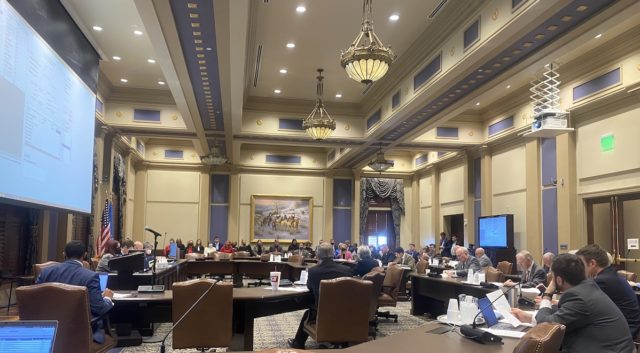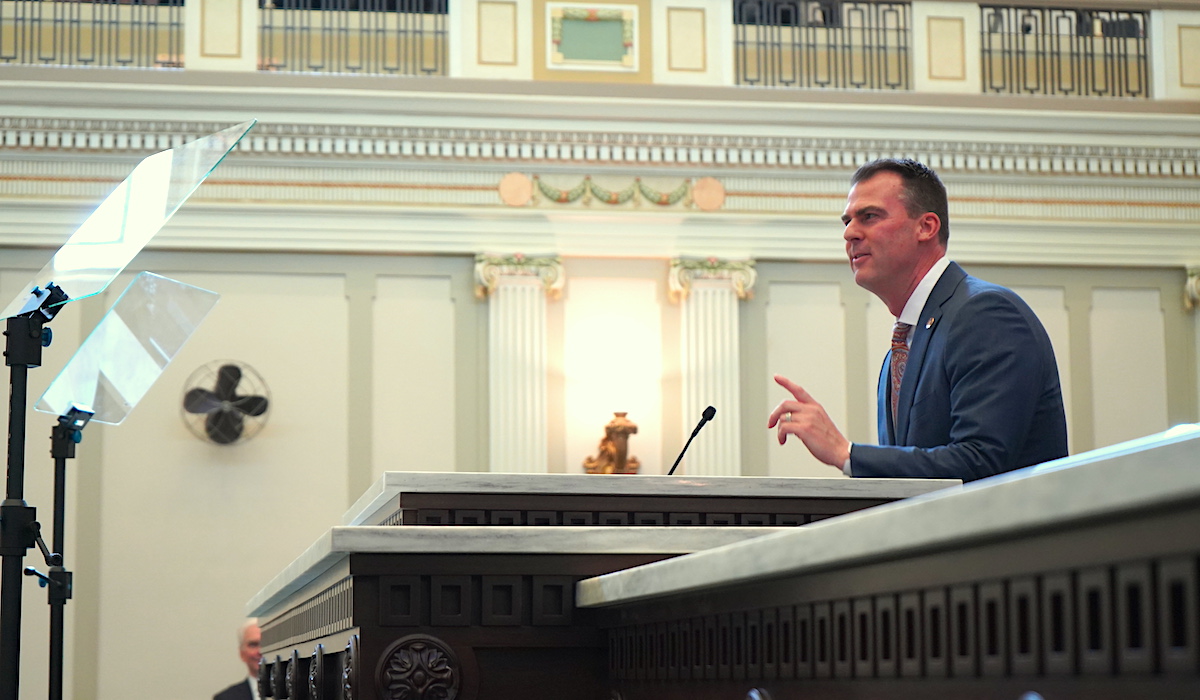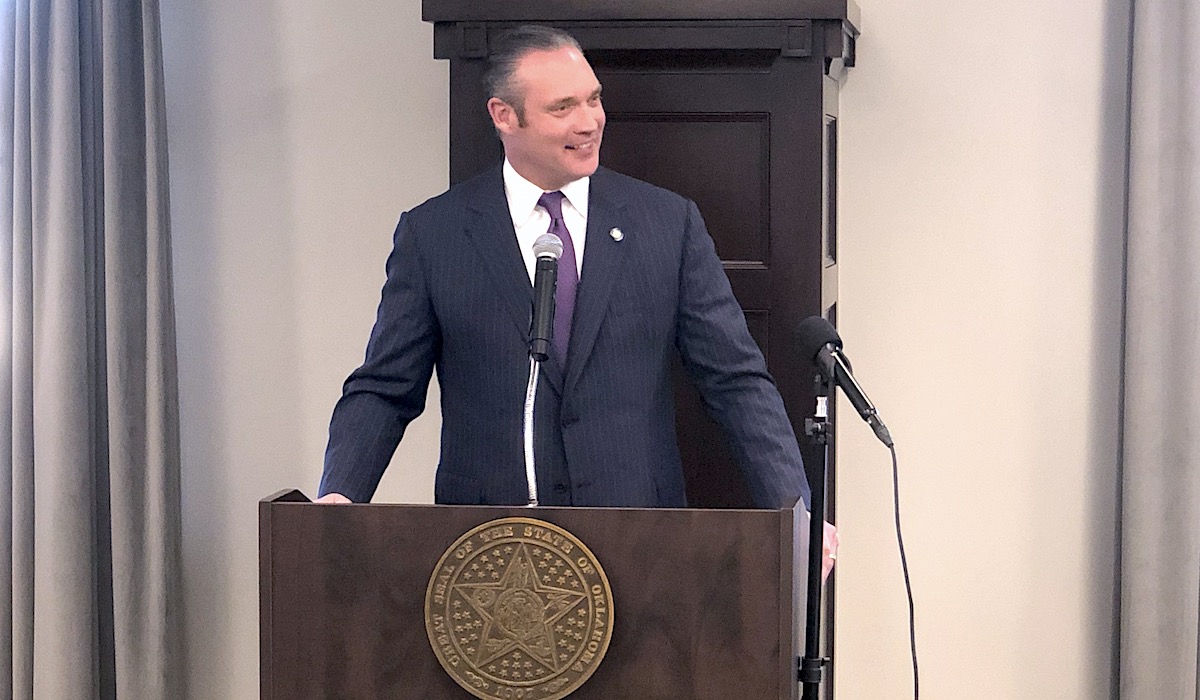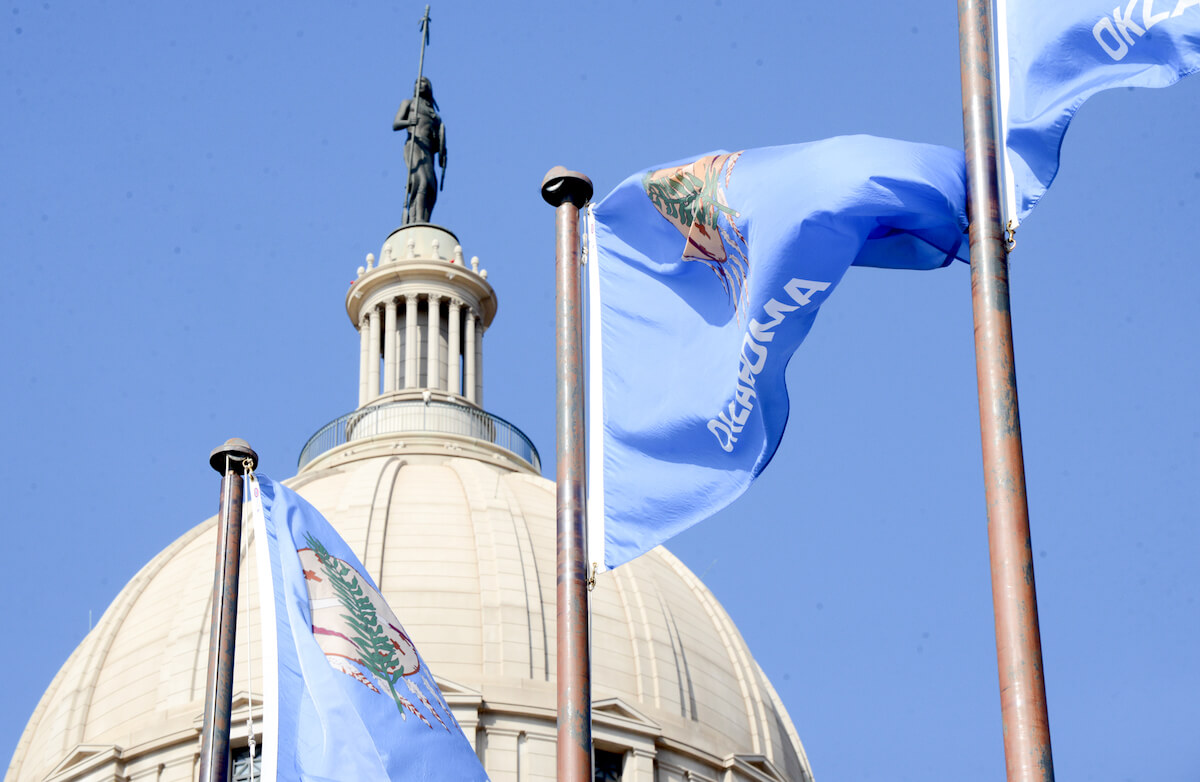

Oklahoma lawmakers filed approximately 338 education-related bills for the 2022 session, but the leaders of the Legislature’s education committees have said they are most focused on the ones aimed at promoting workforce development and keeping teachers in the classroom.
“From an education perspective, where my focus really is going to be this year is on the workforce and making sure we work together,” said Senate Education Committee Chairman Adam Pugh (R-Edmond). “I can tell you right now, we need teachers, we need nurses, we need engineers. I’m hearing from businesses all over the state, and really all over the country. We know we have workforce shortages in those different critical skill sets, so let’s figure out how we produce those people and get them interested and exposed while being innovative doing that.”
Senate Education Committee Vice Chairman Dewayne Pemberton (R-Muskogee) emphasized the importance of getting more teachers into the pipeline.
“Basically, (my priority is) any bill that’s going to find a way for us to get qualified teachers in classrooms, keep qualified teachers and be able to fund the ones that we have there,” Pemberton said. “We’re trying to get (bills) where the mission is to make sure we’re funding the schools, keeping our best teachers in the classroom, keeping class sizes down and (keeping) curriculum strong.”
House Common Education Committee Chairwoman Rhonda Baker (R-Yukon) echoed Pemberton’s education priorities and said the House will be looking for straightforward, helpful legislation.
“The House’s stance is that we’re here to support education, support our teachers, but not have a lot of frivolous bills be heard,” Baker said. “There has been so much fervor, it seems, regarding education. We did some real big pieces of legislation last year with open transfer, funding formula change and (the) Opportunity Scholarship Fund. We’re anxious to see some data on how open transfer has been working.”
Legislators want details in Stitt’s teacher pay plan

Pemberton said school finances will be an important factor his committee will consider when looking at legislation. He said he wants to eliminate bills that have unfunded mandates or put funding responsibilities on school districts without giving them additional money.
Among the proposals that feature funding questions is an education priority outlined by Gov. Kevin Stitt during his State of the State address Feb. 7. Stitt he proposed “matching funds so that our best teachers can make six figure salaries and stay in the classroom.”
Pemberton called the line in Stitt’s speech “another pie in the sky.”
“I think our teachers need to be paid six figures,” Pemberton said. “But there’s no bill, and he’s talking about keeping the budget flat and cutting taxes. How do you do that? The math doesn’t work. It’s basically election-year hype.”
Baker said her education priorities include increasing teacher pay, but she said she has yet to have a conversation with Stitt about where he got his figures.
“My understanding is if the state is able to make a match with the district, that match could be pretty substantial,” Baker said. “If you have a teacher right now that’s making $50,000 and the state is to put in $20,000 and the district matches an additional $20,000, that’s an additional $40,000. But I think that some of that would not be typical. I think that would be a rare occasion.”
Baker has offered two bills of her own for raising teacher salaries. HB 4387 would authorize the creation of “new levels of teacher certificates” based on factors such as teacher observation and student performance. HB 4388 would authorize Oklahoma Lottery Commission deposits into the Education Lottery Trust Fund above $60 million to be used for higher teacher pay among those new “advanced, lead and master” certificates.
Baker said she hopes the plan could incentivize experienced teachers to stay in the classroom instead of making a leap to administration.
“The state will provide funds from the Lottery Commission, which will match funds with the district,” Baker said. “The districts will have to pay a portion, but what this does is allow opportunities for teachers to be making more than their standard salary step.”
In 2021, the Education Lottery Trust Fund received more than $80.2 million from the Lottery Commission. In 2020, that figure was only about $64. million. Baker’s proposal would only authorize the use of money deposited into the fund above $60 million for financing teacher bonus pay.
Rep. John Waldron (D-Tulsa), who sits on the House Common Education Committee, has also filed a pair of bills that he says will propose raising all teacher and staff salaries by 20 percent. However, HB 3723 and HB 3724 are shell bills at this point and do not yet feature specific language that could be analyzed for a fiscal impact.
‘I shouldn’t have to pay for your child’s private education’

Pemberton said he believes the most controversial education bill of the session will be the Oklahoma Empowerment Act, SB 1647, introduced by Senate President Pro Tempore Greg Treat (R-OKC). The bill proposes providing parents access to an “empowerment account” containing the amount of money the state would pay for their student’s public education, which parents would be able to use for private school or other educational expenses instead. To be eligible for the account, students could not enroll in a public school. But eligible students would not be required to enroll in any school or online program at all.
During a legislative forum hosted by the Associated Press and the Oklahoma Press Association on Thursday, House Speaker Charles McCall (R-Atoka) said he does not plan to hear the bill in the House this session, saying it is “not a priority.”
McCall said opposition from many House Republicans stems partly from concern for rural districts like his own.
“What does a kid with a voucher do? What do they do with that?” he said. “The population is so sparse. Are there going to be options that really pop up? So that’s definitely going to be the rural concern from the rural members I serve with, including myself.”
Pemberton also opposes Treat’s measure.
“I’m against it 110 percent. It’s going to take $140 to $200 million right out of state aid, and every student in the state is going to lose $200 in their school district in order for some kids in Oklahoma City our Tulsa to go to a private school,” Pemberton said. “Every school district in the state, whether it’s Beggs, Braggs or Atoka is going to end up paying for someone’s private education, and that’s not right. I shouldn’t have to pay for your child’s private education.”
Pemberton believes the Oklahoma Empowerment Act could also be challenged on a constitutional basis.
Baker also said she opposes the bill.
“I understand that parents are wanting more choice, but that was why we had such a robust school-choice slate of bills last year. Because we were listening to parents.” Baker said. “I don’t agree with public dollars going to private schools. I understand the intent is meant well, but I’m not for that.”
Asked at Thursday’s legislative forum about opposition to the bill within his own caucus, Treat stood by the measure.
“It’s not a voucher plan. That is a negative term that people like to attribute to anything they don’t like. It’s much more akin to an Education Savings Act,” Treat said. “There’s not universal agreement on that, obviously. When you’re disrupting the status quo and trying to pass real reform, there’s not going to be universal agreement.”
Treat said that many in his caucus support the bill, and he questioned the common criticisms of it.
“We have put in a historic amount of money, record levels, into public education. We will continue that commitment, and we will not decimate public school funding. We’ll make sure it’s as robust as ever and continue to invest there,” Treat said. “But no child should be left behind, and no child should be in a situation where they can’t get their best educational attainment.”
RESOURCE
Another bill from Treat, SB 1495, would eliminate the state’s grocery tax — another priority Stitt mentioned in the State of the State. But that proposal was also met with skepticism from Pemberton.
“If you cut grocery taxes, that’s $303 million that has to come out of the budget. But no one has spoken about how you replace that, because we don’t replace it. We just take it and don’t replace it,” Pemberton said. “How are we going to pay for services and schools if we just keep cutting?”
Pemberton said when he and Pugh entered office, in 2017, they dealt with significant budget shortfalls caused by income tax cuts under the Fallin administration. After a historic tax increase passed by the Legislature under threat of a teacher walkout in 2018, lawmakers again cut taxes last year but were also able to provide some additional funding to school districts.
“When you start cutting, if you don’t find revenue streams to replace those dollars, eventually it’s going to hit you in the face, and that’s what happened to us,” Pemberton said. We had to raise taxes. We had to be the bad guys, and that’s where we’re heading now.”
Follow @NonDocMedia on:
‘The most pro-life piece of legislation I can think of’
One piece of legislation Pugh said particularly excites him is his SB 703, which was approved by the Senate Education committee with a 12-1 vote on the second day of session. The bill would provide 12 weeks of paid maternity leave to full-time school district employees in the state.
“I find that to be the most pro-life piece of legislation I can think of,” Pugh said. “Supporting new families and not putting them in a position where they have to choose either or. The amazing thing is it really has been this national bipartisan conversation on how to do that. I’d love for them to figure that out in Washington D.C., but I certainly think at a state level that should be something we prioritize.”
Baker referenced HB 3658 filed by Rep. Danny Sterling (R-Tecumseh), which would eliminate the Oklahoma General Education Test requirement to obtain an alternative teacher certification.
“In a perfect world, back when we had a lot of teachers and a lot of people going into education, it was a way almost to weed candidates out because there was such an influx,” Baker said. “We don’t have that influx anymore.”
Waldron said teacher certification and retention are among his education priorities for this session. He filed HB 3722, which would create a retention fund to pay teachers with a college teaching degree a $4,000 stipend every five years.
Another bill of interest on Waldron’s agenda is HB 3720, which he said would establish legislative intent to promote Holocaust education and set more detailed curriculum guidelines. HB 3721 would create an Oklahoma Holocaust Commission that, among other duties, would provide advice and assistance to schools in the state regarding anti-Semitism and the Holocaust.
(Correction: This article was updated at 2:06 p.m. Monday, Feb. 14, to correct the number of education-related bills filed for the 2022 legislative session. NonDoc regrets the error.)





















